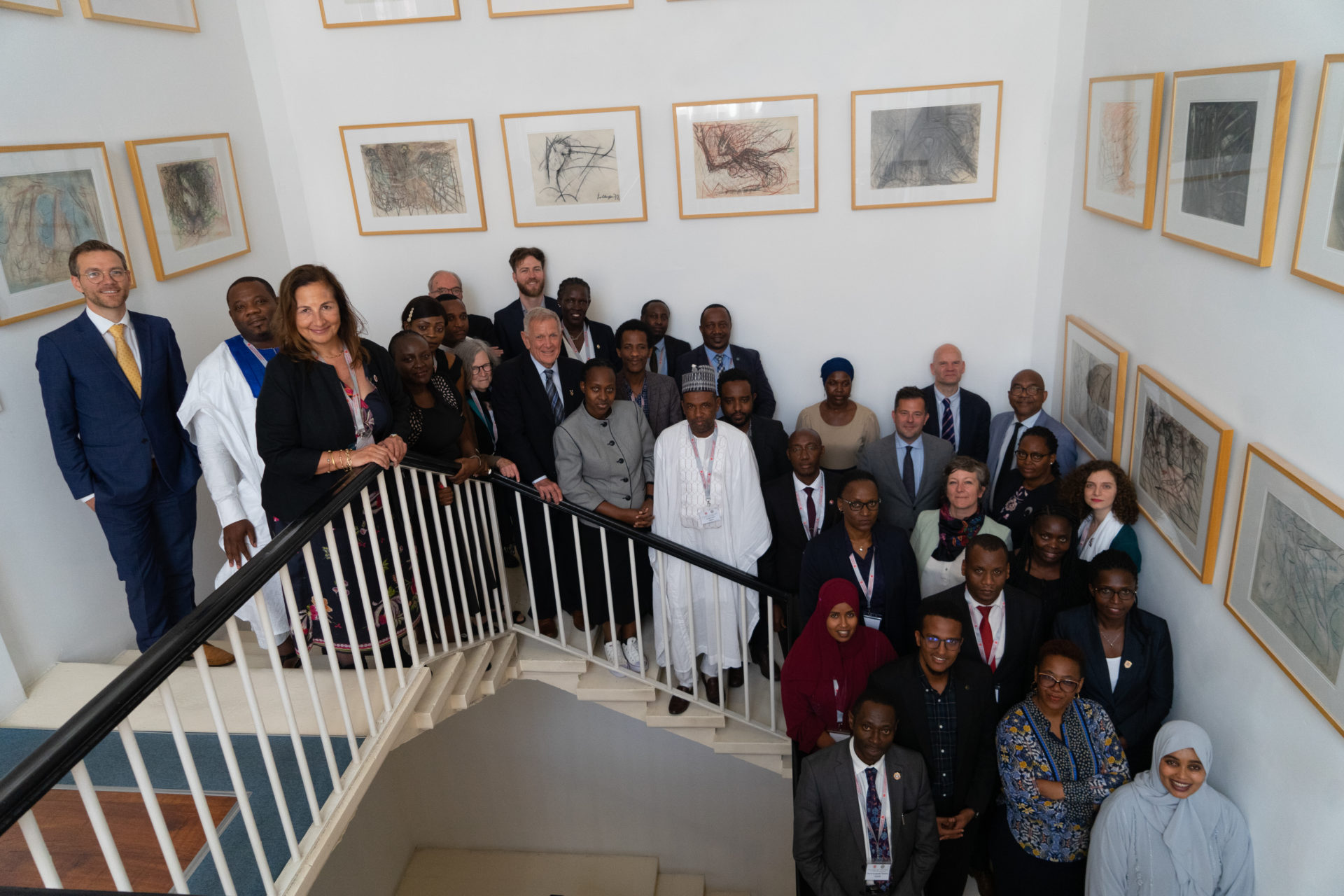
From 16 – 26 May, the IIJ Academic Unit continued its important work frontline criminal justice practitioners by delivering its Counter-Terrorism Academic Curriculum (CTAC) course. This immersive, foundational course – funded by the United States of America’s Department of State – was the second to be offered for English-speaking practitioners from East and West Africa and built the skills and capacities of 23 police investigators, prosecutors, and examining judges from Cameroon, Ethiopia, Kenya, Nigeria, Rwanda, Somalia and Uganda.

The unique CTAC course is aimed at strengthening practitioners’ core skills on conducting investigations and prosecutions of terrorist crimes through:
- Increased awareness of proportionate, reasonable and justifiable methods to investigate terrorism, in compliance with human rights, including special investigation techniques;
- Improved drafting and advocacy skills to accurately communicate facts and legal arguments;
- Implementation of efficient case management procedures to reduce trial delays;
- Improved participation of witnesses and victims in investigations and prosecutions of offenders, including through better protection mechanisms;
- Enhanced knowledge of international good practices for the effective investigation and prosecution of terrorism cases; and
- Strengthening international networks and international cooperation to improve evidence collection, mutual legal assistance and the extradition of offenders.
The course and the discussions it included were enriched by the geographic and professional breadth of the participants, who came from various criminal justice institutions and from seven countries. Speaking to this dynamic, David Ssegendo Wasswa, a Senior Police Commissioner in the Uganda Police Force, told the IIJ, “As Uganda, are very very happy for the IIJ to have selected a good number of us to participate in this—a combination of prosecutors and investigators together, understanding perspectives of [each other]. So understanding the different perspectives sitting together in one class – in one environment – of course guided by the experts, there is nothing better than that.”
As with all CTAC courses, the instructors (which brought their experience as judges, prosecutors, investigators and defense attorneys) used interactive pedagogical methods through which the participants are required to solve problems and challenges which arise during the investigation of a hypothetical cross-border terrorism case. Instructors also brought case studies from their own experiences to prime a number of important discussions on witness and victim protection as well as safeguarding courtrooms during proceedings that involved dangerous defendants accused of organised crime and terrorism. This approach was appreciated by the participants. “The eCTAC and [CTAC], the practical structure of the course of the presentations,” remarked David Wasswa, “where you have seasoned judges and prosecutors before us giving typical examples of their experiences combined with the requirements of the modern moving investigating terrorism, [provides] a lot of knowledge and impact to us.”
The process of active problem solving reinforces the relevant skills and good practices presented in the course materials. The problem-solving exercises allowed participants to deepen their fundamental knowledge and will facilitate the use and implementation of these new skills in their work in their national jurisdictions.
As part of the IIJ’s commitment to gender equality, it is important to highlight that this CTAC was also the second course to have either gender parity among its participants or a majority of women. One Tanzanian prosecutor, Ms Batilda Mushi, expressed her appreciation of this effort. “We see this in [the] IIJ where the balance of women in the fight against terrorism was well taken care of. We see more women now coming forward. They are part and parcel of the decision making … leading investigations [and are active] in all areas in the fight against transnational organised crime, including terrorism. So, I applaud the IIJ for the steps that they have taken to appreciate women in this fight.”
The IIJ will continue its efforts to build the capacities of both women and men working to provide rule of law responses to terrorism and other transnational organised crime.
For more information on the CTAC, please contact the IIJ at info@theiij.org
